|
Would you like to learn Poco lento in Gb Major from L'Organiste by Cesar Franck?
I hope you'll enjoy playing this piece yourself from my PDF score which will save you many hours of work and help you practice efficiently. Thanks to Annabel Brown for her meticulous transcription from the slow motion video. What will you get? PDF score with complete fingering written in. Basic Level. 1 page. Let me know how your practice goes. This score is free for Total Organist students. Check it out here
Comments
Would you like to learn Noel Angevin in G Major from L'Organiste by Cesar Franck?
I hope you'll enjoy playing this piece yourself from my PDF score which will save you many hours of work and help you practice efficiently. Thanks to Jeremy Owens for his meticulous transcription from the slow motion video. What will you get? PDF score with complete fingering written in. Basic Level. 1 page. Let me know how your practice goes. This score is free for Total Organist students. Check it out here
Vidas: Hi guys, this is Vidas!
Ausra: And Ausra! V: Let’s start episode 552 of Secrets of Organ Playing Podcast. This question was sent by Joanna, and she writes: “Dear Vidas, The little finger on my right hand is giving me problems. It has been like this for a few years. I am afraid I will have to give up organ playing in a couple of years’ time because it is stiff, and it clicks and makes a jumping movement at the knuckles. It is a problem to play fast passages because of it. Is there anything I can do… practise more? Practise less? Exercises? Joanna” V: Have you ever encountered, Ausra, such a condition? A: No, actually I haven’t. And what I would advise to Joanna is that she might consult a physician first. V: Yeah, because it might be unique to her situation, and since we haven’t encountered it, we cannot really advise anything specific. A: Yes, but I would suggest definitely not to practice more, because it might do things even worse. So she really needs to consult her physician and to see what he or she will say. V: Right. But practice less, probably is a good idea. A: For right now… until she will get that consultation. V: Sometimes these problems might be because of overworking certain joints. A: Yes, it might be. But definitely, she needs to consult a physician because she hadn’t had that problem earlier. She was developing it for the last few years, so… V: And I think she writes the little finger of her right hand is giving her problems. I would suggest maybe doing a test while playing only the right hand part, and doing it really really slowly. It means probably that her little finger is quite tense. Maybe she can relax it, see if she can relax it and place it on the keyboard instead of lifting in the air. That helps. A: Yes, that’s often the case, that the fifth finger is sort of looking… V: Like a piglet's tail, right? A: Yes. V: Curled. So if she can relax it and place it on the keyboard, maybe the tension can also diminish somewhat. Right? A: Yes, that’s a possibility, but I think it’s wise to check up with a doctor to see if there’s a serious problem with it. V: Right. But for example, I have a thumb, for example, and my condition of the thumb is that it’s kind of curved in the wrong direction. The tip of the thumb is looking outward, not inward. And this is because from an early age I was taught to play correctly, but I didn’t pay attention, and today, if I want to correct this finger’s position, I need to do a very conscious effort, and it’s not natural to me. You know, I have to even probably hold my hand a little bit in order to relax it. So maybe Joanna can also see with her left hand, feel if there is a tension on her right hand little finger. Right? A: Yes. V: And then see if she can relax it and place it on the keyboard. Maybe Alexander Technique would be helpful to her, right? A: Sure. V: Okay. This was Vidas, A: And Ausra. V: Please send us more of your questions; we love helping you grow. And remember, when you practice, A: Miracles happen. SOPP548: My goal as an organ player is to be able to play organ for worship services regularly1/28/2020
Vidas: Hi guys, this is Vidas!
Ausra: And Ausra! V: Let’s start episode 548 of Secrets of Organ Playing Podcast. This question was sent by Jake. He writes: “Vidas, My goal as an organ player is to be able to play organ for worship services regularly. The three things that are holding me back the most are: 1-lack of consistent practice. 2-lack of knowledge of what to practice. I need help building a practice schedule based on an organ method book. I’m using the red book by Roger Davis. But I do also own the little organ book by Peters 3-lack of access to a working organ.” V: Let’s say, Ausra, you only had those two books by Roger Davis, and by Flor Peeters. Would that be enough? A: Well, I don’t know Little Organ Book by Peeters, actually, but I know that by Roger Davis, we own it as well. So I cannot talk about Peeters’ book because I don’t know it, but I can talk about Roger Davis’ book. It has good repertoire, but actually, I wouldn’t suggest you use the Baroque pieces from this book, because definitely, they are not edited in a historically accurate manner. V: Yes. A: So basically, if you really need a good textbook for your practice and both sides of like Romantic and Modern and Early techniques, you need to get the Ritchie/Stauffer book because it’s very comprehensive, and it has a nice selection of pieces, and it’s a really good book. It gives a good idea how things need to be played. V: It’s like a treatise, basically. Nowadays, people don’t write treatises, but before, let’s say, the 20th century, there were a number of organ performance practice treatises written, let’s say, for playing flute by Joachim Quantz, for playing violin by Leopold Mozart, for playing Clavier by, let’s say, C. P. E. Bach. Those are very thick volumes and are very comprehensive. They encompass a variety of topics—basically everything you need to know as a particular performer, and even creator. They talk about creative issues as well—improvisational issues for performance, practice, styles… So, the same is with the Ritchie/Stauffer book. It’s very complex and comprehensive. I think if you get this volume, you will stick with it for several years at least, until you finish, plus you will regularly come back to it, like a compendium, like an encyclopedia in a sense. George Stauffer and George Ritchie have different personalities. Stauffer did the musicological research, and George Ritchie did the organ exercise parts—performance, practice, research, and they both cooperated really well. A: Yes, I think it’s a really successful book, so I strongly recommend it for anybody that wants to learn to play organ well. Another thing about consistence of practice, well, you cannot succeed if you will not practice consistently. And if you want to play a service regularly, then do it! And this will push you into consistent practice, if you will have worship to play every week, every Sunday. And maybe if you will start to play at the church regularly, you will get to practice on that instrument regularly, and this will solve your problem number 3, the lack of access to a working organ! V: Yes, but you have to still have basic skill in order to be invited to play for services. A: Yeah, that’s true. V: Before you have this skill, maybe you could volunteer. You could volunteer from time to time, like once a month, let’s say, not once a week, it’s too much, but maybe once a month you prepare a few hymns, maybe a prelude and postlude, and that would be your goal for one month. And, little by little, you get acquainted with the congregation this way, you get known in the congregation, you build reputation within that circle, people start to trust you, and sometimes they even ask you to play more regularly. Right? And by the time that happens, you will have acquired a decent skill for service playing, I think. A: That’s right. V: That’s what our student and friend John Higgins from Australia has done. At first, he volunteered just basically… he started from scratch! He didn’t study in the music school or the conservatory, he started studying with us on line, and then became our Total Organist student, was very curious, asked many questions, we created many training programs based on his ideas and struggles, and little by little, not only did he start playing in services, but he started playing recitals, A: Yes! V: And in recent years, he even came to Vilnius to play a recital on the largest pipe organ in Lithuania! A: He published his DVD as well! V: Yeah! This is an example of what you can achieve if you set your mind to it. If you have a, let’s say, a growth mentality, and not a limited mentality. A limited mentality is like you say, “I lack those three things,” or “many things,” “seven things,” “eight things.” And, “I’m frustrated.” And growth mentality says, “Yes, I have those struggles and challenges, but with consistent practice, I can overcome anything.” A: True. Consistency is a very useful tool. V: But, well, let’s be honest, it’s not easy to do it, and because it’s not easy, a lot of people quit half time or haven’t progressed at all. They quit before they even start seeing the results. Right? Because if you start seeing results, you get hooked. It’s easier to continue. It’s easier to continue when you start playing for the church service and people start to compliment your playing in a nice manner, even though you feel you’re not really worth it. But sometimes people see the good side in your playing as well, and even a relative beginner can play very simple things relatively well from time to time. Not always, because many time you will panic or slip or freeze. But from time to time good things will happen, and the congregation will notice! So, it’s important for Jake to have this growth mentality and, I think, to say that anything is possible. And actually, to have a higher goal. Not only to play for church services, but something a little out of reach. I would say it’s very good, because if you reach for the stars and only get to the moon, it’s not so bad. A: Yeah, true. V: What can you add, Ausra, to my long spiel? A: I think you are right! I couldn’t agree more! V: Thank you guys, this was Vidas! A: And Ausra! V: Please send us more of your questions; we love helping you grow. And remember, when you practice, A: Miracles happen!
Thank you everyone for participating! You all made us very happy with your entries. We have selected the following winners.
Have you ever wanted to start to practice on the organ but found yourself sidetracked after a few days? Apparently your inner motivation wasn't enough.
I know how you feel. I also was stuck many times. What helped me was to find some external motivation as well. In order for you to advance your organ playing skills and help you motivate to practice, my wife Ausra - @laputis and I invite you to join in a contest to submit your organ music and win some Steem. Are you an experienced organist? You can participate easily. Are you a beginner? No problem. This contest is open to every organ music loving Steemian. Here are the rules
Welcome to Secrets of Organ Playing Podcast 558!
Today's guest is Hans Davidsson, Artistic Director of Göteborg International Organ Festival & Göteborg International Organ Academy. Hans Davidsson (born 1958) is a Swedish organist and organ teacher. He was one of the driving forces behind establishing the organ research center GOArt and the Eastman Rochester Organ Initiative. He is currently professor of organ at the Royal Danish Academy of Music. Davidsson studied organ at University of Gothenburg with Hans Fagius and Rune Wåhlberg. He later spent three years at the Sweelinck Conservatory, Amsterdam, studying with Jacques van Oortmerssen. He began teaching organ at Göteborg University in 1986 and was appointed professor in 1988. In 1991 he became the first doctor of music performance in Sweden, successfully defending his dissertation on the organ music of Matthias Weckmann. From 1995 until 2000 he was the director of the Göteborg Organ Art Center, GOArt, leading research in organ building and performance practice. From 2001 to 2012 he worked at the Eastman School of Music serving as professor of organ and project director of the Eastman Rochester Organ Initiative. In 2007 he was appointed professor of organ at University of the Arts Bremen and in 2011 professor of organ at the Royal Danish Academy of Music. In January 2004 he was awarded H. M. The King's Medal for "significant accomplishments in musicology and music, primarily in the fields of organ research and organ education". In 2015, he was awarded the Large Prize by the Frobenius Foundation in Denmark for “significant achievements as musicologist, pedagogue and musician”. In 2016, he was elected member of the Royal Academy of Music in Sweden. In this conversation Hans Davidsson shares his insights about the upcoming Gothenburg International Organ Festival 2020 "The Organ as Mirror of Its Time". Listen to the conversation Related link: https://www.organacademy.se
Would you like to learn Noel Angevin in G Minor from L'Organiste by Cesar Franck?
I hope you'll enjoy playing this piece yourself from my PDF score which will save you many hours of work and help you practice efficiently. Thanks to Diana Danilova for her meticulous transcription from the slow motion video. What will you get? PDF score with complete fingering written in. Basic Level. 1 page. Let me know how your practice goes. This score is free for Total Organist students. Check it out here
Would you like to learn Poco Allegro in F# Minor from L'Organiste by Cesar Franck?
I hope you'll enjoy playing this piece yourself from my PDF score which will save you many hours of work and help you practice efficiently. Thanks to Diana Danilova for her meticulous transcription from the slow motion video. What will you get? PDF score with complete fingering written in. Basic Level. 2 pages. Let me know how your practice goes. This score is free for Total Organist students. Check it out here
Yesterday Ausra and I recorded 3 podcast episodes in the morning. The first was No. 559 which was about the question asked by Arthur. He wanted to know if my organ compositions are available for downloading to Total Organist members without paying for them extra. In particular he was interested in my Meditation in D, Op. 35. Ausra thought it's a good idea to let more people play my music and I think so too. But before I make a decision, I also want to ask the community if this feature would be useful to have in the program.
Another question for podcast No. 560 was sent by Maureen who wanted to know how to play confidently and with the feeling for the music. She has dreamed of playing the Widor Toccata. The last question which we answered today for Podcast No. 561 was sent by Andrei. He was grateful that his organ playing is improving drastically. The reason for this might be that he is studying from my Organ Sight-Reading Master Course. In this conversation Ausra and I argued about what's more important for an organist to develop - strong sight-reading or strong improvisation skills? Why not try both? In the afternoon I went to our Unda Maris organ studio rehearsal. 8 people were playing today. The first that started was Justas with his rendition of the C Major Little Prelude and Fugue. He played it last year but hasn't finished it. Maybe this May will be his time... Then Rokas played G minor Prelude and Fugue from the same collection. I advised him not to look at the fingers while playing. Totile was next. She played Praeludium in D major by Buxtehude. I think she will soon be able to play it faster. She also played through my Meditation in D, Op. 35 for the first time. She hasn't played many legato style pieces so articulation will require extra focus. Vytautas played a Trio in Eb minor by Bach. He loves pieces with lots of accidentals. Next step will be with 7 sharps or flats for him. Diana played "Bellows" from my cycle "Organ ABC" which I'm currently composing. It's coming along well but for this week's contest it may not be ready yet. Our new student Lukas played the first short trio by Lemmens. I instructed him to practice in 7 different combinations. Audre played a Lithuanian church hymn - this time for two parts. Up until now she has been playing in parallel octaves but I think she is ready to add one independent voice as well. Also with pedals. The last was Marek who improvised for a while on soft stops. He needs to start learning to read musical notation. |
DON'T MISS A THING! FREE UPDATES BY EMAIL.Thank you!You have successfully joined our subscriber list.  Photo by Edgaras Kurauskas Photo by Edgaras Kurauskas
Authors
Drs. Vidas Pinkevicius and Ausra Motuzaite-Pinkeviciene Organists of Vilnius University , creators of Secrets of Organ Playing. Our Hauptwerk Setup:
Categories
All
Archives
July 2024
|
This site participates in the Amazon, Thomann and other affiliate programs, the proceeds of which keep it free for anyone to read.
Copyright © 2011-2024 by Vidas Pinkevicius and Ausra Motuzaite-Pinkeviciene.
Terms of Service and Privacy Policy
Copyright © 2011-2024 by Vidas Pinkevicius and Ausra Motuzaite-Pinkeviciene.
Terms of Service and Privacy Policy

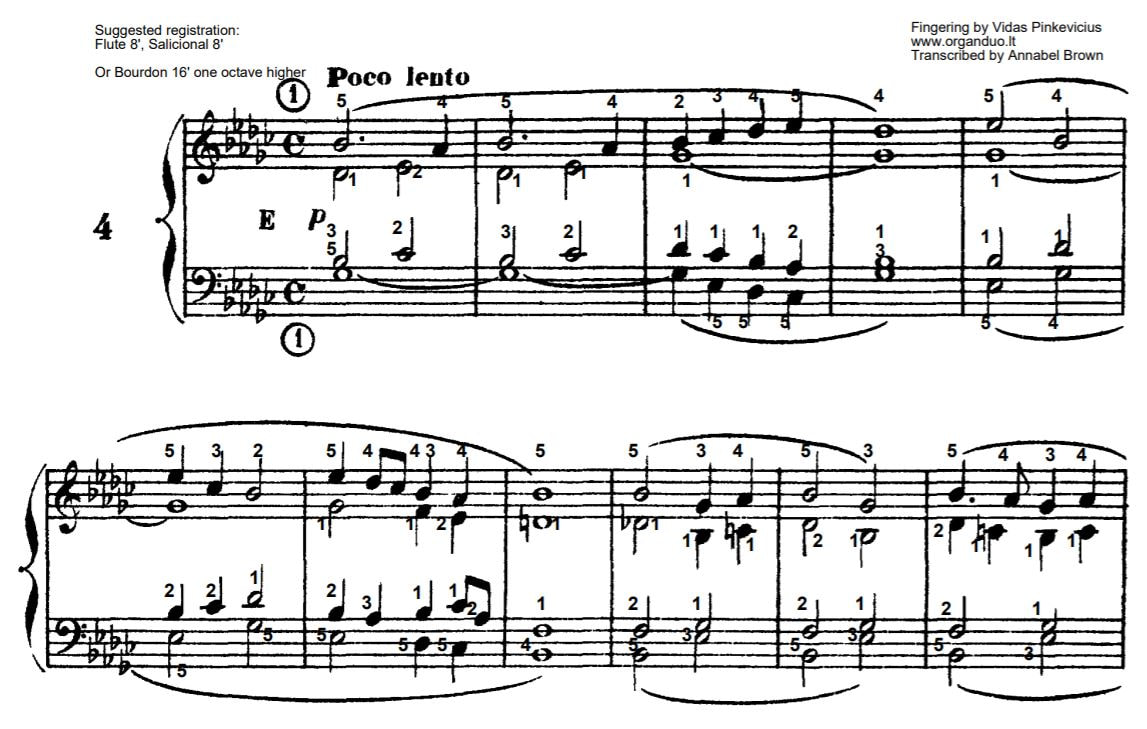
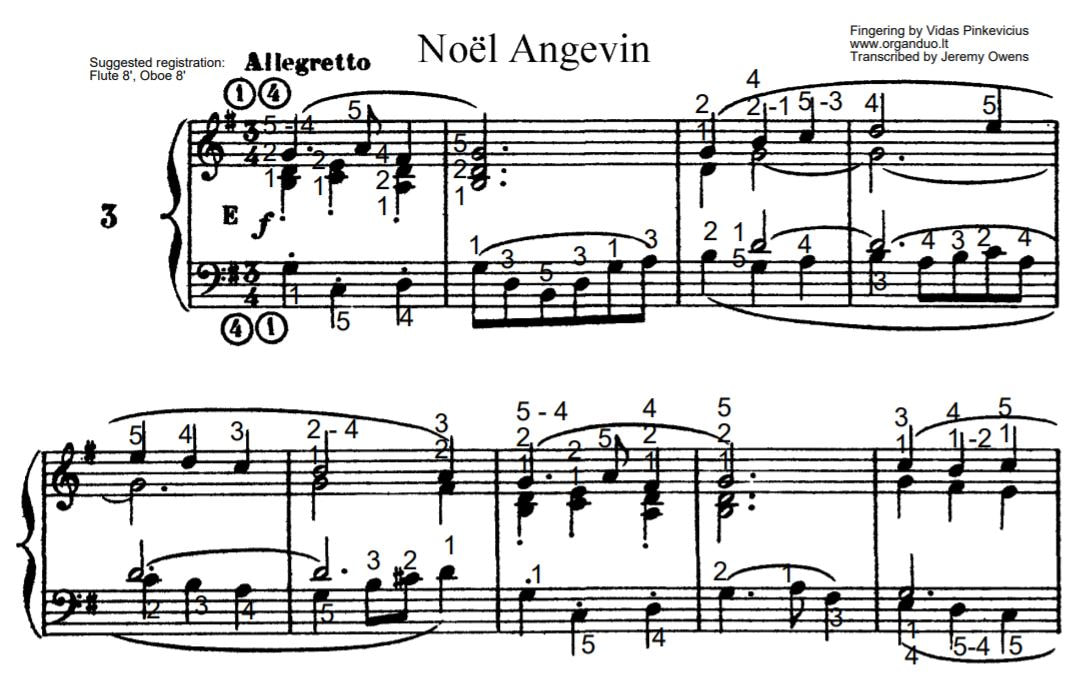
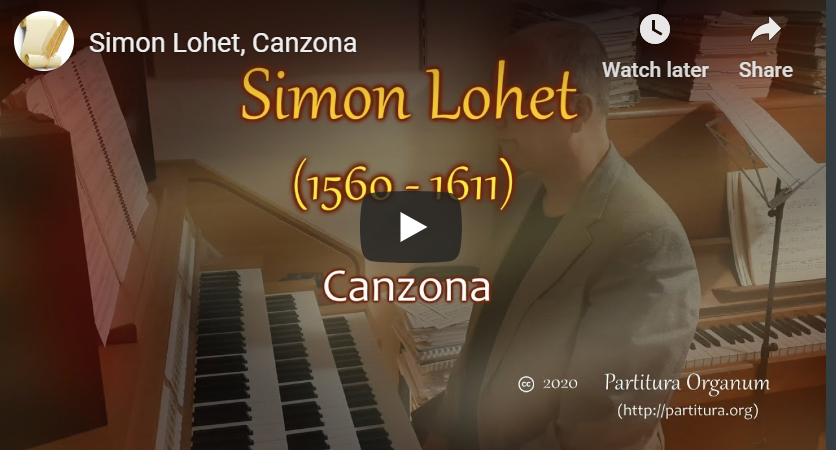
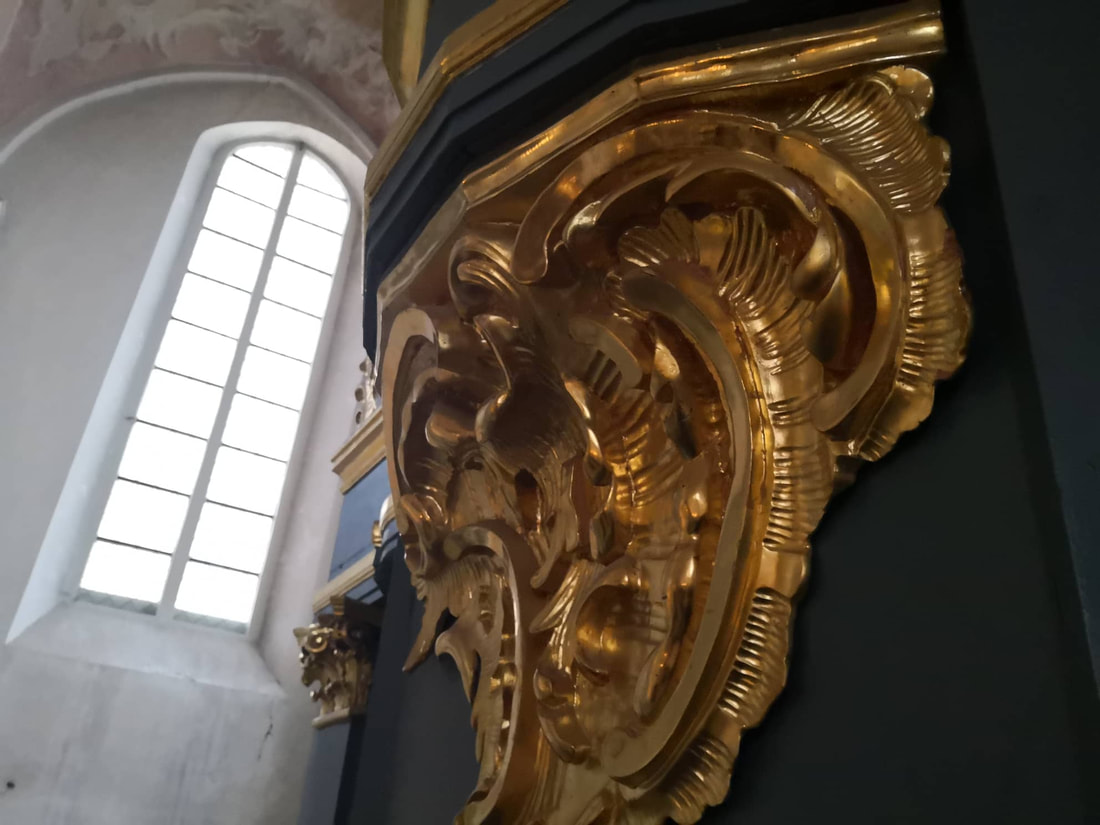
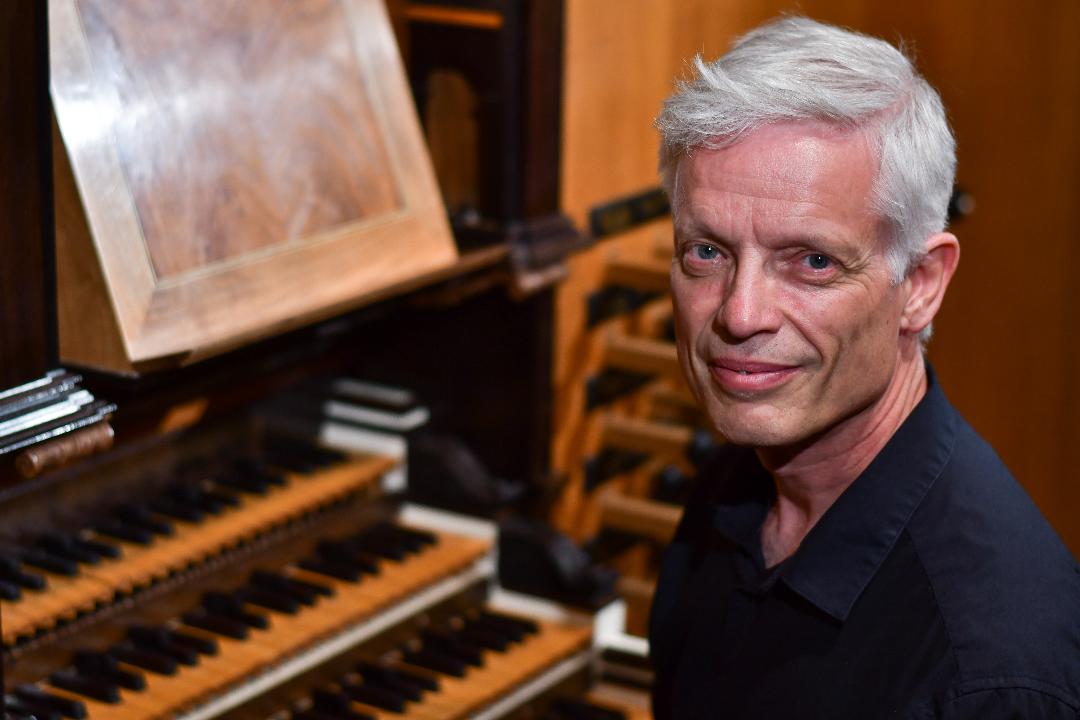
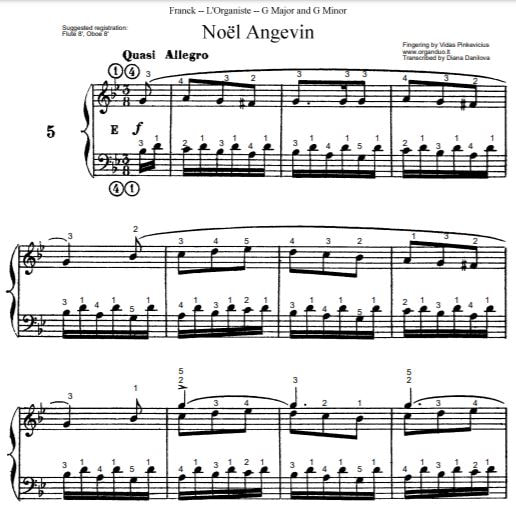
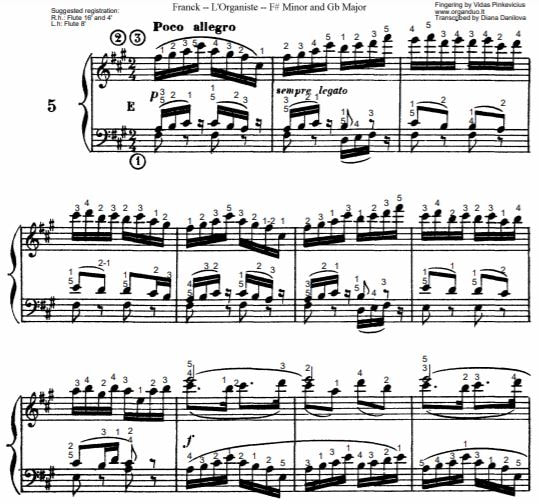
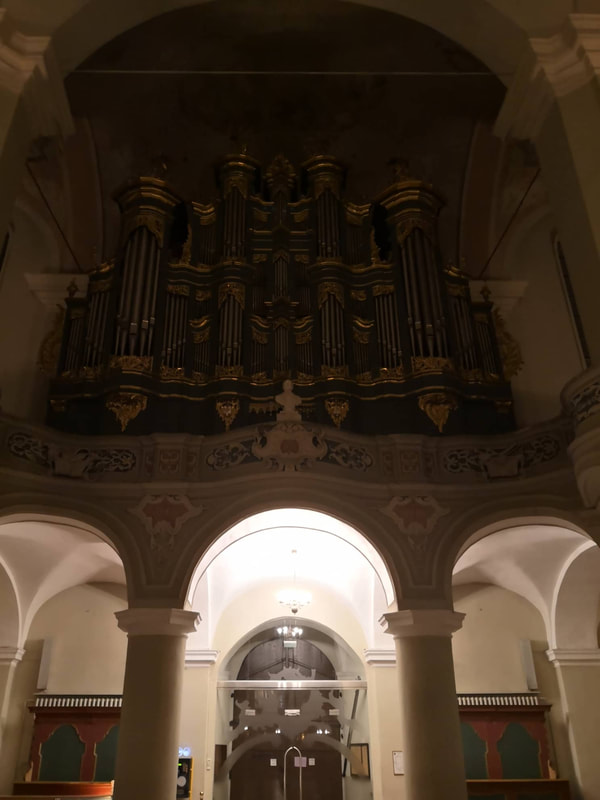



 RSS Feed
RSS Feed